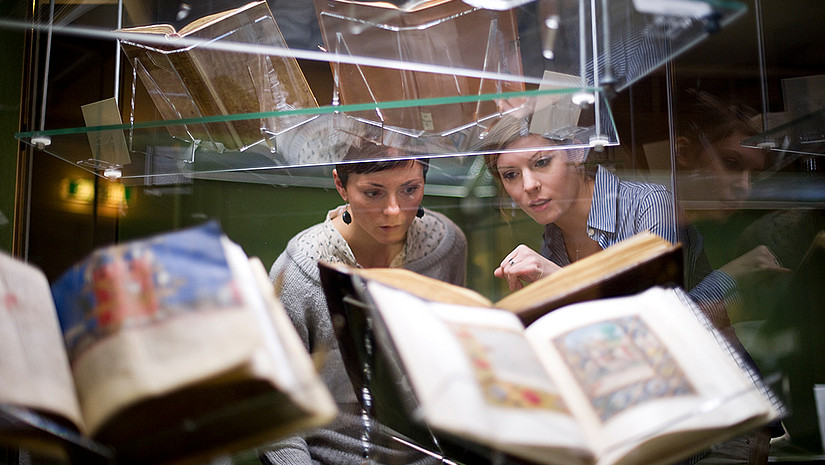The Bachelor's degree course in Art History teaches you the diversity and breadth of art history. You will not only acquire basic skills in dealing with the methods of art studies and art history, but also expand your knowledge through the practical orientation of the course. In addition to a professional qualification, the B.A. degree also gives you access to a subsequent Master's degree course.
First, you will acquire knowledge of the epochs and developmental history of art, methods for analyzing works and the basics of academic work through introductory and foundation modules. In the further course of your studies, you will be able to concentrate on an individually chosen thematic focus based on the fields of research represented on the course. These include painting from the 15th to 19th centuries, central questions of art theory and aesthetics, the development of fine art in the 20th and 21st centuries and modern art and museum history. The Bachelor's degree course in Art Studies concludes with a topic of your choice.
Seminars and lectures on the Art Studies course usually take place at the Kunsthochschule Kassel, which contributes to the personal atmosphere within the course and promotes individual support for students. At the same time, you benefit from the close proximity to art and design courses by being able to visit one of the 14 study workshops and take courses there. Excursions to national and international museums and associated exercises in front of original works of art are also part of your studies. In addition, exhibitions or publications are realized in interdisciplinary project seminars, allowing you to apply your acquired knowledge in practice.
The networking of the Art Studies degree program with museums, galleries and other art and cultural institutions in Kassel and the surrounding area also contributes to this, where you can gain your first professional experience as part of an internship and gain an overview of the many different paths open to art scholars after graduation.
With its high density of museums, which includes the institutions of the Museumslandschaft Hessen Kassel and the Fridericianum as an exhibition venue for contemporary art, Kassel also offers prospective art historians the ideal conditions for a lively exploration of the diversity of art as a place to study with the documenta, which takes place every five years.
